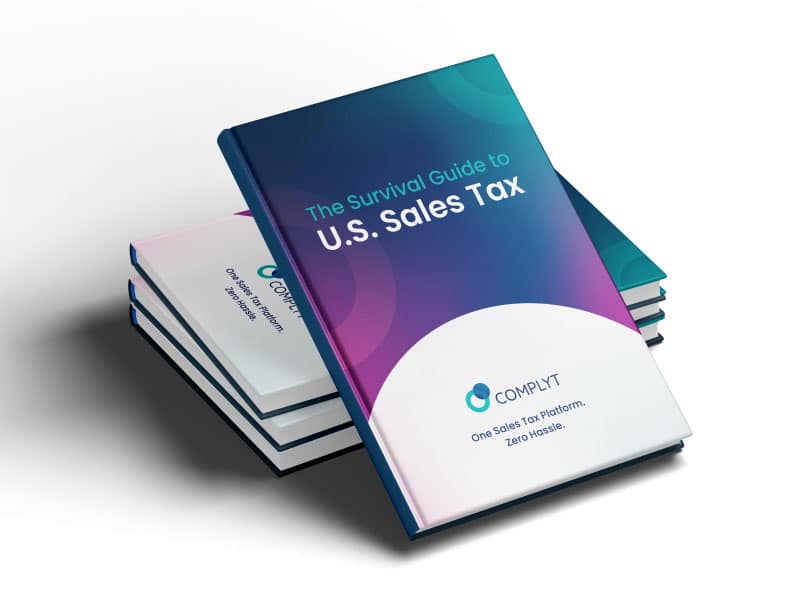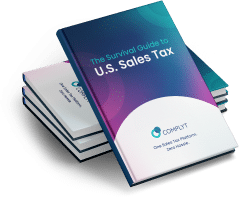What is the sales tax rate in Massachusetts?
In Massachusetts, the statewide sales tax rate is 6.25%. Unlike many other states, Massachusetts does not allow municipalities to charge local sales taxes, so the rate remains consistent throughout the state. This makes the Massachusetts sales tax compliance journey far simpler to navigate than in other states. But that doesn’t mean there aren’t pitfalls you need to be aware of.
Sales Tax Massachusetts: When should your business start thinking about Massachusetts sales tax compliance?
Businesses should collect sales tax in Massachusetts if they have established a sales tax nexus in the state.
Now while the term “nexus” may seem like something needlessly complex, it simply means a substantial presence or connection. This nexus (or connection) can be a physical nexus or an economic nexus.
What is the Massachusetts Physical Sales Tax Nexus?
Physical nexus refers to any physical presence your business has within Massachusetts. Examples include:
- A physical location in the state, such as a retail store, office, or warehouse
- Employees working in the state
- A warehouse or distribution center located in Massachusetts
But due to the borderless digital business landscapes, a physical nexus can also be established in scenarios such as the following:
- You have a third party affiliate partnership with a business in the state
- Your business offers click-through links to businesses in Massachusetts
- You supply delivery services through a courier located in Massachusetts
If you tick the box for any of these, then your business has a physical nexus in Massachusetts.
Massachusetts Economic Nexus: Revenue, Thresholds, and Transactions
Massachusetts has an economic nexus law. This requires out-of-state sellers who made more than $100,000 in sales in Massachusetts in the prior or current calendar year to collect and remit sales tax.
Which services are taxable in Massachusetts?
In Massachusetts, most services are not subject to sales tax. However, there are a few exceptions, including telecommunications services, installation services sold with tangible personal property, and certain software-related services.
To determine whether your service is taxable in Massachusetts, it is advised to get in touch with a tax authority to determine if the services you offer are taxable or not in the state of Massachusetts.
Massachusetts Sales Tax on Products: How to Calculate What Your Business Should be Charging
In Massachusetts, the sales tax rate is a straight 6.25%. This means that if you are selling a product for $100, you would charge your customer $106.25. The extra $6.25 represents the sales tax. It’s important to include this in your pricing structures and to keep track of the tax you collect, as you will need to remit it to the state.
How to navigate Massachusetts clothing tax
Massachusetts clothing tax is calculated based on the cost of the product:
- Clothing and footwear being sold for $175 or less are exempt from sales tax
- Products sold at a price higher than $175 are taxable at the statewide sales tax rate of 6.25%
However, this distinction applies to general clothing only. Athletic apparel, protective gear, and accessories are generally subject to sales tax regardless of their selling price.
Massachusetts sales tax holidays also offer relief to consumers by exempting certain items from sales tax, including clothing, regardless of their cost.
Massachusetts Online Sales Tax: Are SaaS and Digital Services Taxable?
Massachusetts laws require sales tax on some digital products and Software as a Service (SaaS). These include canned or prewritten software, regardless of how it is distributed, and modifications to prewritten software.
SaaS Sales Tax Massachusetts: Does my Business Need to Charge Sales Tax for SaaS in Massachusetts?
Yes, Massachusetts SaaS sales tax is a vital part of compliance for SaaS providers. Businesses selling SaaS products to Massachusetts customers need to include sales tax in their pricing and remit it to the state. Massachusetts is one of the states that have taken a firm and clear stance on SaaS taxability, not simply grouping it into inefficient existing tax laws.
How can a business get a sales tax permit in Massachusetts?
To get a sales tax permit in Massachusetts, businesses must apply online through the MassTaxConnect website. You’ll need to provide your federal Employer Identification Number (EIN), your legal business name, and your business address.
Collecting Sales Tax in Massachusetts as a Business
Businesses collecting sales tax in Massachusetts need to file regular sales tax returns with the Massachusetts Department of Revenue. This helps the state keep track of what you owe in sales tax.
Massachusetts Tax Return Due Dates Explained
Sales tax return due dates in Massachusetts are dependent on how frequently you’re required to file – monthly, quarterly, or annually. The due date is generally the 20th day of the month following the reporting period.
What is the required frequency for sales tax returns in Massachusetts?
The filing frequency in Massachusetts depends on the volume of sales you have in the state. Most businesses file either monthly (if annual sales tax collected is over $1,200), quarterly (if annual sales tax collected is less than $1,200), or annually (if annual sales tax collected is less than $100).

